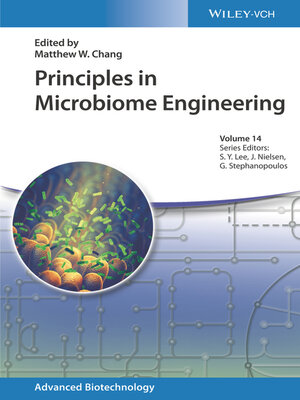
Sign up to save your library
With an OverDrive account, you can save your favorite libraries for at-a-glance information about availability. Find out more about OverDrive accounts.
Find this title in Libby, the library reading app by OverDrive.



Search for a digital library with this title
Title found at these libraries:
| Library Name | Distance |
|---|---|
| Loading... |
Provides an overview of the techniques and applications insight into the complex composition and interactions of microbiomes
Microbiomes, the communities of microorganisms that inhabit specific ecosystems or organisms, can be engineered to modify the structure of microbiota and reestablish ecological balance. In recent years, a better understanding of microbial composition and host-microbe interactions has led to the development of new applications for improving human health and increasing agricultural productivity and quality.
Principles in Microbiome Engineering introduces readers to the tools and applications involved in manipulating the composition of a microbial community to improve the function of an eco-system. Covering a range of key topics, this up-to-date volume discusses current research in areas such as microbiome-based therapeutics for human diseases, crop plant breeding, animal husbandry, soil engineering, food and beverage applications, and more. Divided into three sections, the text first describes the critical roles of systems biology, synthetic biology, computer modelling, and machine learning in microbiome engineering. Next, the volume explores various state-of-the-art applications, including cancer immunotherapy and prevention of diseases associated with the human microbiome, followed by a concluding section offering perspectives on the future of microbiome engineering and potential applications.
Edited and authored by leading researchers in the rapidly evolving field, Principles in Microbiome Engineering is an essential resource for biotechnologists, biochemists, microbiologists, pharmacologists, and practitioners working in the biotechnology and pharmaceutical industries.







